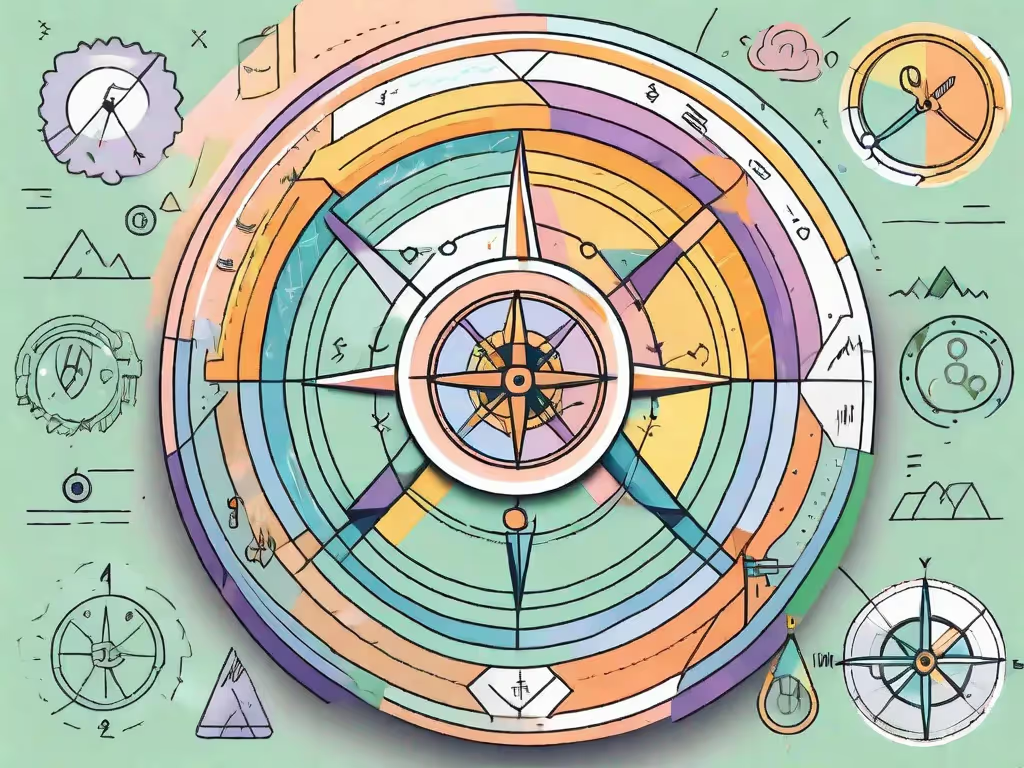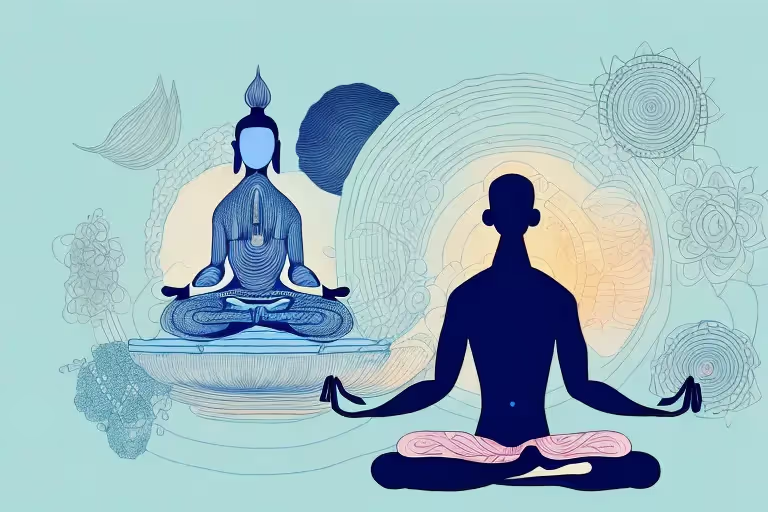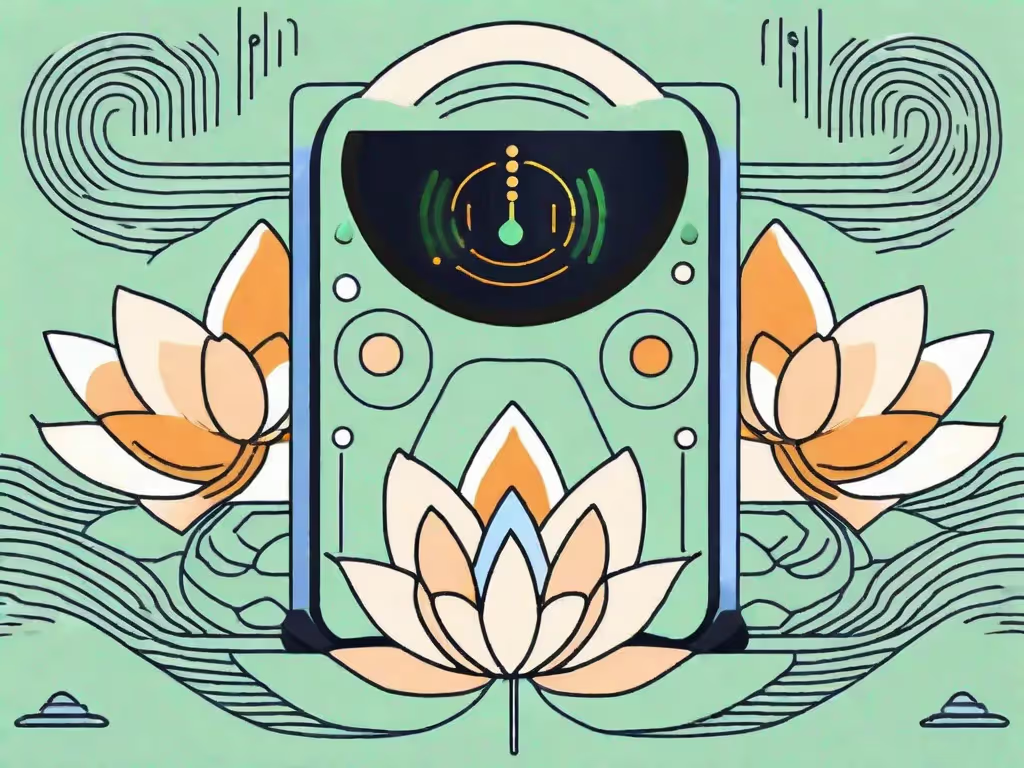Do you ever find yourself struggling to understand your own emotions? Emotions can be complex and elusive, making it challenging to navigate through them. Fortunately, there is a powerful tool that can help you unravel the complexities of your emotions and gain a deeper understanding of yourself - the Emotion Wheel.
The Concept of the Emotion Wheel
In order to grasp the significance of the Emotion Wheel, it's important to understand its origin and development. The Emotion Wheel was first introduced by psychologist Robert Plutchik in the 1980s as a way to categorize and visualize various emotions. Plutchik's theory proposed that there are eight primary emotions - joy, trust, fear, surprise, sadness, disgust, anger, and anticipation - which serve as the foundation for all other emotions.
This groundbreaking concept was further refined over the years, leading to the development of the modern-day Emotion Wheel. The wheel consists of concentric circles, with the eight primary emotions at the center and secondary emotions radiating outwards. By mapping your own emotions onto the wheel, you can begin to recognize patterns and gain insights into their underlying causes.
Let's delve deeper into the origins of the Emotion Wheel. Robert Plutchik, a renowned psychologist, dedicated his career to understanding human emotions. He believed that emotions are complex and multifaceted, and that they play a crucial role in our daily lives. Plutchik's research led him to develop the Emotion Wheel as a tool to help individuals better understand and navigate their emotional experiences.
Plutchik's theory of eight primary emotions was based on the idea that these emotions are universal and innate to all human beings. He argued that these primary emotions are biologically rooted and serve as the building blocks for a wide range of other emotions. By identifying and categorizing these primary emotions, Plutchik aimed to create a comprehensive framework for understanding the complexities of human emotional experiences.
Over time, Plutchik's theory gained recognition and acceptance within the field of psychology. Researchers and practitioners began to use the Emotion Wheel as a practical tool for therapy, self-reflection, and emotional regulation. The wheel provided a visual representation of the intricate connections between different emotions, allowing individuals to explore the nuances of their emotional landscape.
The modern-day Emotion Wheel, inspired by Plutchik's original concept, has evolved to include secondary emotions that branch out from the primary emotions. These secondary emotions represent more specific and nuanced emotional states, further enriching our understanding of the human emotional experience. By expanding the wheel to include secondary emotions, the Emotion Wheel offers a more comprehensive and detailed framework for exploring and analyzing emotions.
By utilizing the Emotion Wheel, individuals can gain valuable insights into their emotional patterns and triggers. Mapping their own emotions onto the wheel allows them to identify recurring themes and understand the underlying causes of their emotional experiences. This self-awareness can be a powerful tool for personal growth, emotional intelligence, and overall well-being.
The Role of Emotion Wheel in Self-Discovery
The Emotion Wheel serves as a valuable tool for self-discovery, allowing you to delve into the depths of your emotions and gain a greater understanding of yourself. By actively identifying your emotions and tracing their patterns, you can uncover valuable insights about your thoughts, behaviors, and relationships.
For instance, let's say you frequently experience feelings of anger and frustration. By using the Emotion Wheel, you may realize that these emotions are often triggered by a sense of perceived injustice or a violation of your personal boundaries. Armed with this newfound knowledge, you can take steps to address these underlying issues and develop healthier coping mechanisms.
Identifying Your Emotions
One of the key techniques in using the Emotion Wheel is the daily emotional tracking. Taking a few minutes each day to reflect on your emotions and record them in a journal can provide valuable insights. By explicitly labeling your emotions and noting the circumstances surrounding them, you can start to identify patterns and uncover hidden triggers.
Emotional mapping is another effective technique that can be used in conjunction with the Emotion Wheel. Imagine yourself as a cartographer, exploring the vast landscape of your emotions. By carefully examining each emotion you experience and mapping them onto the wheel, you can create a visual representation of your emotional landscape. This visual aid can be incredibly powerful in facilitating self-reflection and identifying recurring patterns.
The Benefits of Using the Emotion Wheel
By incorporating the Emotion Wheel into your self-discovery journey, you can reap numerous benefits.
Enhancing Emotional Intelligence: The Emotion Wheel helps to enhance your emotional intelligence by fostering self-awareness and empathy. As you become more proficient in identifying and understanding your own emotions, you also become better equipped to navigate the emotional landscape of others.
Promoting Mental Health and Well-being: Developing a deeper understanding of your emotions can contribute to improved mental health and well-being. By identifying negative patterns or unresolved emotional issues, you can take proactive steps to address them and cultivate a healthier emotional state.
Overcoming Challenges in Using the Emotion Wheel
While the benefits of using the Emotion Wheel are abundant, it's essential to acknowledge the potential challenges that may arise.
Dealing with Complex Emotions: Emotions are seldom black and white. Often, they are nuanced and multifaceted, making it challenging to fit them neatly into categories. However, understanding that complexity is a crucial step in the self-discovery process. Using the Emotion Wheel as a starting point, you can explore the interplay between various emotions and gain a more comprehensive understanding of your emotional landscape.
Navigating Emotional Overwhelm: On the other hand, the process of delving into your emotions may sometimes lead to feelings of overwhelm. It's essential to approach the Emotion Wheel with self-compassion and take breaks when needed. Remember, self-discovery is a journey, and it's important to prioritize your well-being throughout the process.
Aura Health App serves as a guiding compass on your self-discovery journey, offering the support and tools you need to navigate through the challenges and make meaningful progress towards greater self-understanding and emotional well-being.
Dealing with Complex Emotions
The Emotion Wheel can be particularly helpful in navigating complex emotions. When facing emotions that seem contradictory or confusing, refer to the wheel as a reference point. By breaking down these complex emotions into their primary and secondary components, you can gain clarity and insight into their underlying sources.
Navigating Emotional Overwhelm
Despite that the Emotion Wheel can sometimes unearth intense emotions, it also equips you with the tools to navigate emotional overwhelm. By systematically analyzing your emotions and gaining a deeper understanding of their triggers, you can develop strategies to manage and regulate your emotional responses.
Aura Health App provides a safe and supportive space for exploring and processing intense emotions. Through its curated resources and meditative practices, you can cultivate a sense of calm and balance, even in the face of emotional overwhelm.
In conclusion, the Emotion Wheel is a powerful tool that can help you unravel the intricacies of your emotions and gain a deeper understanding of yourself. By actively engaging with the Emotion Wheel's techniques and reflecting on your emotions, you can embark on a transformative self-discovery journey. So, start exploring your emotional landscape with the Emotion Wheel and allow Aura Health App to accompany you every step of the way.
Aura is Your One-Stop App for Mindfulness, Meditation, and Well-Being
Utilize a single app for your whole well-being to find calm each day. There is no one-size-fits-all approach to improving mental health. The first comprehensive wellness app that learns how to best assist you is called Aura. Discover a never-ending collection of professionally produced tracks for your wellbeing, all taught by the top trainers, therapists, and storytellers in the world. Every morning, day, and night, you can discover tranquility with Aura's personalized recommendations.



.webp)






.avif)

%20(1).avif)


.avif)
.avif)
.webp)


.avif)


















































































































.avif)

















.svg)









